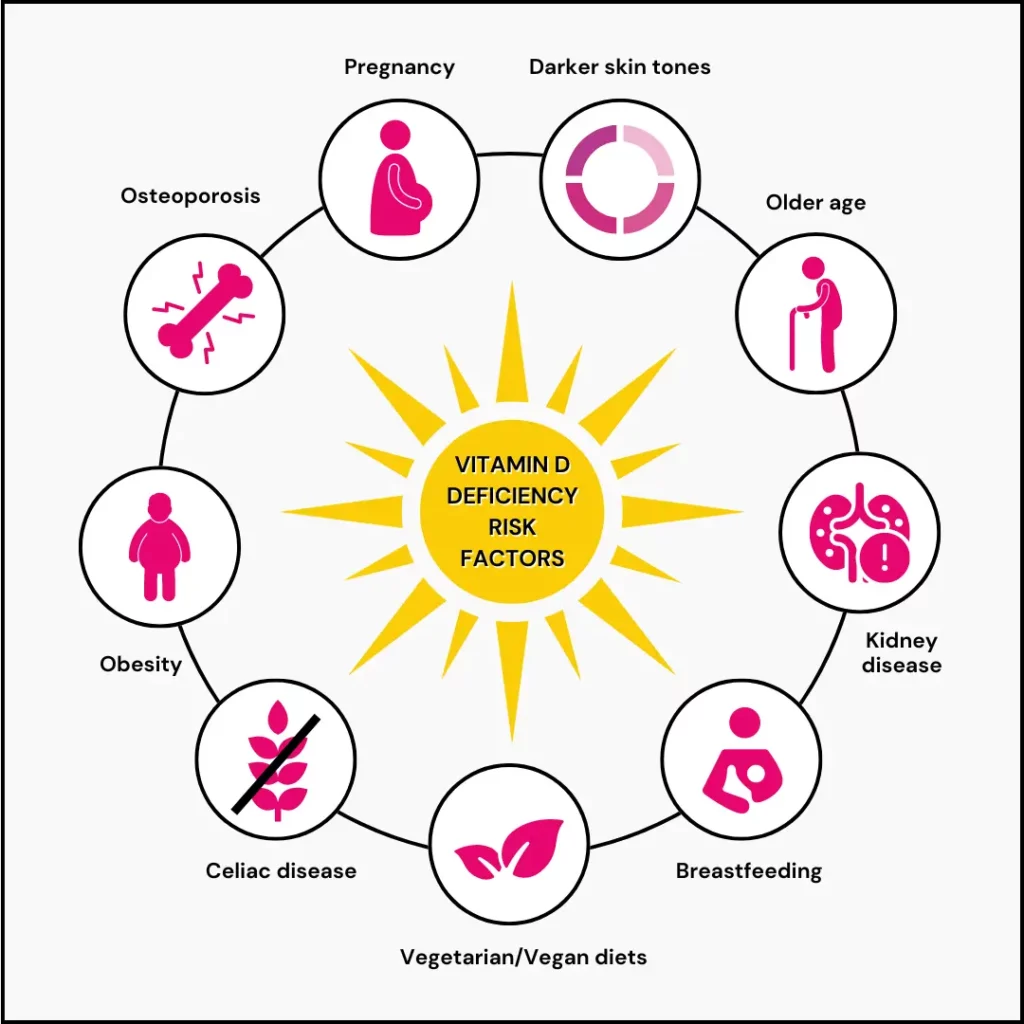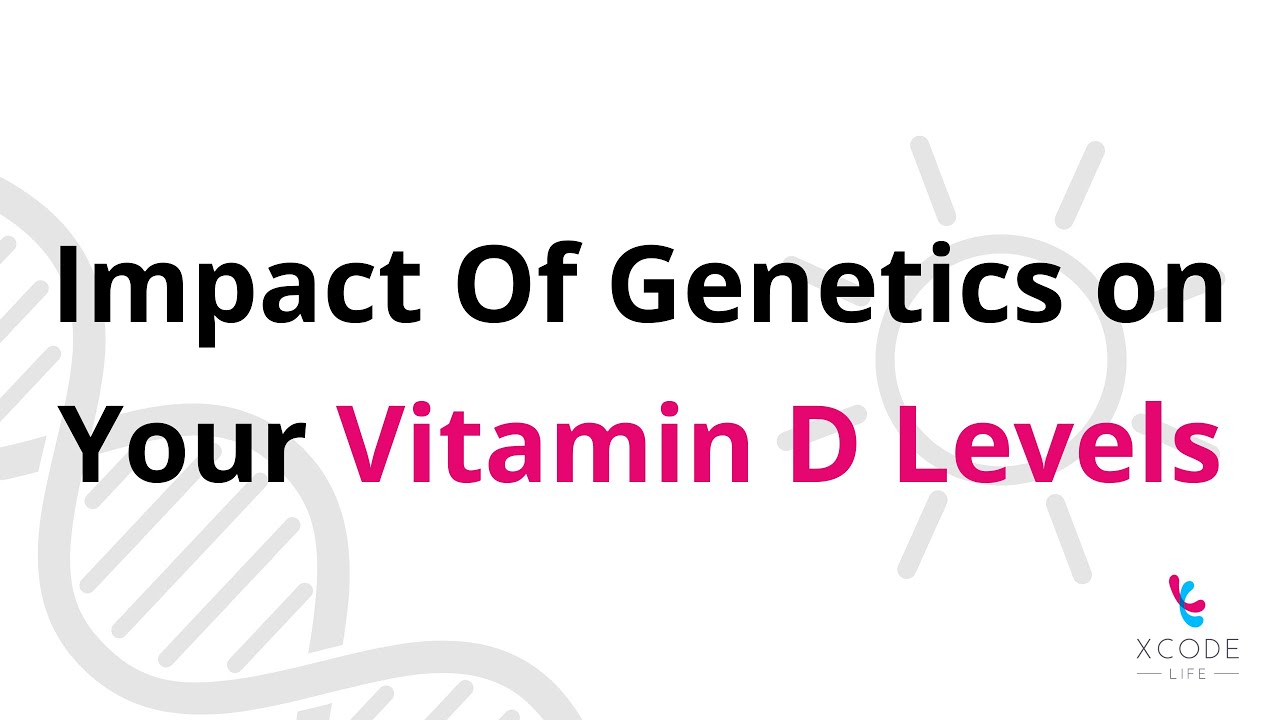Now called the "silent epidemic," vitamin D and vitamin B12 deficiencies can endanger the body in several ways. The ever-so-common constant bouts of tiredness, brain fog, bad mood, and body aches could all be explained by these deficiencies. But how are these two essential vitamins related? How can you increase your nutritional intake naturally? This article will help you understand vitamin D and B12 deficiencies, the signs to look out for, and easy ways to meet daily recommended doses of these vitamins.
Different nutrients have different roles in the body.
Nutritional deficiencies cause various physical and mental health issues in children and adults globally.
In some cases, one nutrient can affect the absorption or use of another, leading to a combination of health issues.
One such combination is vitamin D3 and B12 deficiencies.
Importance Of Vitamin D and Vitamin B12
Vitamin D is a fat-soluble vitamin, also called the sunshine vitamin.
A majority of the vitamin is absorbed when UV rays from the sun come in contact with the skin.
Vitamin D is available in certain foods and supplements in vitamin D2 (ergocalciferol) and vitamin D3 (cholecalciferol) forms.
Vitamin B12 is a water-soluble vitamin that is found in several kinds of foods and dietary supplements.
Importance Of Vitamin D
- It helps in calcium absorption and is essential for bone health.
- Reduces the risk of developing osteoporosis.
- Reduce inflammation in the body.
- Plays a role in healthy glucose metabolism.
- Helps in cellular growth.
- Supports the immune system by keeping immune T cells active.

Importance Of Vitamin B12
- It is required for the healthy development and functioning of the Central Nervous System (CNS).
- Helps in the healthy formation of Red Blood Cells (RBCs).
- It helps produce methionine, an essential amino acid that supports metabolism.
- It helps manage symptoms of depression and other mood disorders.
- It helps support brain health in fetuses.
- Helps in the production of hormones, including the thyroid.
Can Vitamin D and Vitamin B12 Deficiency Occur Together?
Yes; according to experts, low vitamin D levels may affect vitamin B12 absorption and lead to vitamin D and B12 deficiencies.
There are three ways vitamin D and B12 deficiencies can occur together.
- An unhealthy diet and malnutrition may cause both vitamin D and vitamin B12 deficiencies together.
- Vitamin D deficiency may damage the stomach's mucosal (inner lining) layer. This may cause generic nutritional deficiencies, including vitamin B12 deficiency.
- Vitamin D deficiency may prevent the reabsorption of B12 and folate.
A 2022 study analyzed the relationship between vitamin D and vitamin B12 levels in children.
The study reported that children who are vitamin B12 deficient have a higher probability of also being vitamin D deficient.
What Is Wrong If Your Vitamin D-3 and Vitamin B-12 Are Low?
Low levels of Vitamin D3 and B12 can have significant impacts on your health.
Understanding the consequences of these deficiencies can help you take proactive steps to maintain your well-being.
- Genetic regulation and metabolism
- These vitamins play a key role in regulating the functions of several genes.
- Proper gene regulation affects hundreds of metabolic processes, ensuring your body operates smoothly.
- Bone health concerns
- Brittle bones: Deficiencies can lead to bones becoming fragile and more prone to fractures.
- Bone reabsorption and weakness: Lack of these vitamins may cause the body to break down bone tissue, weakening the skeletal structure.
- Osteoporosis: Prolonged deficiencies significantly increase the risk of developing osteoporosis, a condition characterized by porous and fragile bones.
- Physical and mental symptoms
- Fatigue: Persistent tiredness and lack of energy are common signs of low Vitamin D3 and B12.
- Cognitive fog: Difficulty concentrating and mental clarity issues may arise.
- Depression: Mood swings and feelings of depression can be linked to these deficiencies.
- Body aches: Experiencing unexplained aches and pains throughout the body.
- General malaise: A constant feeling of being unwell or sick without a clear reason.
- Pyrexia of Unknown Origin (PUO)
- PUO is characterized by a persistent fever without a clear diagnosis.
- A 2015 study suggests that low levels of Vitamin D3 and B12 may be a common cause of PUO.
- Autoimmune Hypothyroidism
- In autoimmune hypothyroidism, the immune system mistakenly attacks healthy thyroid cells, leading to decreased thyroid function.
- A 2020 study indicates that deficiencies in Vitamin B12 and D3 might contribute to the development of autoimmune hypothyroidism.
Signs of D3 and B12 Deficiencies
Here are some of the signs of D3 and B12 deficiencies.
- Hormonal imbalance
- Fatigue
- Tiredness
- Low energy levels
- Joint pain
- Muscle weaknesses
- Osteoporosis
- Brittle nails
- Body ache
- Brain fog
- Memory loss
- Low immunity and a constant bout of sickness
- Infertility issues
- Depressive disorders
- Mood disorders
- Tingly hands and feet
*These signs could also be due to other reasons and health conditions. Please avoid self-diagnosing nutritional deficiencies and consult a doctor.
How To Meet Vitamin D3 and B12 Requirements?
Meeting Vitamin D3 Requirements
Every cell in the body has vitamin D3 receptors on its surface.
The easiest way to meet daily vitamin D3 requirements would be to expose the hands, legs, face, and back to the sun for 5-30 minutes once a day, without sunscreen.
However, some people may have susceptible skin or have a higher risk of skin cancer due to sun exposure.
Such individuals can increase their vitamin D3 levels with food and supplements.
Recommended Dietary Allowance of Vitamin D
| Age | Male (in mcg) | Female (in mcg) |
| 0-12 months | 10 | 10 |
| 1-70 years | 15 | 15 |
| >70 years | 20 | 20 |
Dietary sources of vitamin D
- Cod liver oil
- Fish like trout, sardines, salmon, and tuna
- Beef
- Chicken breast
- Mushrooms
- Fortified eggs
- Fortified milk
Meeting Vitamin B12 Requirements
Since the body does not make vitamin B12, you must depend on natural food sources and dietary supplements to get your daily recommended dose.
Recommended Dietary Allowance of Vitamin B12
| Age | Male (in mcg) | Female (in mcg) |
| 0-6 months | 0.4 | 0.4 |
| 7-12 months | 0.5 | 0.5 |
| 1-3 years | 0.9 | 0.9 |
| 4-8 years | 1.2 | 1.2 |
| 9-13 years | 1.8 | 1.8 |
| >14 years | 2.4 | 2.4 |
Dietary sources of vitamin B12
- Fish like tuna, sardines, and salmon
- Beef liver
- Turkey
- Eggs
- Clams
- Milk
- Fortified nutritional yeast
- Fortified breakfast cereals
The bioavailability of vitamin B12 changes with the type of dietary source chosen. The bioavailability of supplements can be up to 50% higher than natural food sources.
Summary: Vitamin D and Vitamin B12 Deficiency Together
- Vitamin D and B12 are essential vitamins the body needs to perform everyday activities.
- Vitamin D deficiency may prevent the body from absorbing and reabsorbing B12, leading to vitamin B12 deficiency.
- Individuals with vitamin D and B12 deficiencies may experience many signs in the body and brain.
- Some symptoms of vitamin D and B12 deficiencies are tiredness, fatigue, brain fog, memory loss, low energy levels, body aches, low immunity, and brittle bones.
- Individuals can receive their daily recommended doses of Vitamin D and B12 with sun exposure and the inclusion of dietary food and supplements rich in these nutrients.
Others Are Also Reading

How Long Does It Take For Vitamins To Work?

11 Warning Signs of Magnesium Deficiency: Are You at Risk?

Can Vitamin B12 Help In Weight Loss?
References
- https://www.ncbi.nlm.nih.gov/pmc/articles/PMC4366991/
- https://www.karger.com/Article/FullText/505094
- https://www.nature.com/articles/ejcn201640
- https://pubmed.ncbi.nlm.nih.gov/35319507/
- https://www.ncbi.nlm.nih.gov/pmc/articles/PMC5986508/
- https://ods.od.nih.gov/factsheets/VitaminB12-HealthProfessional/
- https://ods.od.nih.gov/factsheets/VitaminD-HealthProfessional/#en1
- https://www.sciencedirect.com/science/article/abs/pii/S0899900722000958
- https://www.ncbi.nlm.nih.gov/pmc/articles/PMC5009884/
- https://www.ncbi.nlm.nih.gov/pmc/articles/PMC4366991/
- https://www.karger.com/Article/FullText/505094







